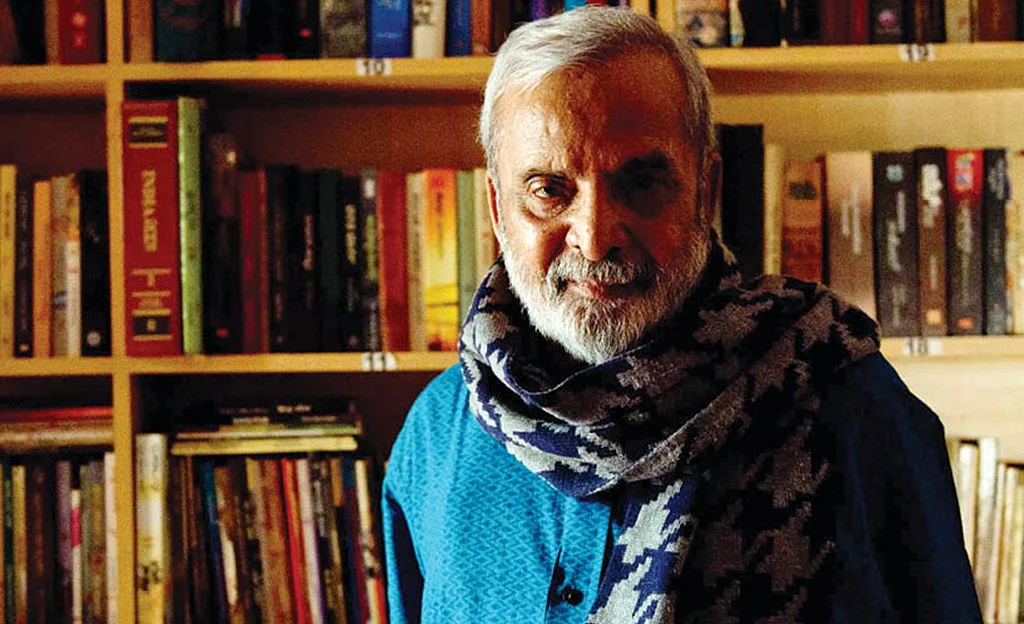The Saligrama
UR Ananthamurthy’s <i>Bharathipura </i>takes a look at untouchability and caste system in the 1970s

His resolve hardened. Jagannatha stood at the door of the puja room.
Brass lamps were shining in the dark room, a casket held the saligrama of the household deity, Narasimha. People believed that if it was polluted in any way, a black cobra would enter the house, a fire would burn down the farm. It was supposed to be a thousand years old. For generations now, the members of the family had eaten their meals only after drinking holy water sanctified by being poured over the stone.
Should he go into the room and bring out the saligrama right then, in the presence of the priest? Could he go in with his shirt on, thus polluting the prayer room? Should he bring it out together with the casket? Jagannatha’s heart began to pound. His feet were perspiring. He felt there was no turning back now, and so he went in. The priest was horrified to see the master polluting the room with the way he had entered it.
.jpg?auto=format%2Ccompress)
Jagannatha had to pretend that he was not doing anything unusual. And yet, the shock on the priest’s face made him put out his hand as if to protect himself. Though no one was holding him, Jagannatha held his breath and pushed forward as if his whole family was pulling him back as he lifted the saligrama together with the casket. Jagannatha tried to smile but his face merely contorted as he looked at the priest who did not know what to do.
Controlling a desire to run out, he walked out of the pooja room, stooping a little at the door. He walked slowly towards the veranda. This saligrama of Narasimha had probably never crossed the threshold.
The Holeyaru who stood beyond the yard, dressed in white, looked like orphans. Their eyes did not look as if they hoped for anything. They were just looking at Chikki standing at the door, and at him. They did not know what would happen next.
Jagannatha walked slowly. The sun was a red ball of fire on the shoulder of a distant hill. He went close to the Holeyaru and stood before them. They moved backwards; their master had come too close to them. As he lifted the lid of the casket, he felt his action was so absurd that if the conch and the temple-gongs were sounded at the moment, it would be a fitting comment on what he was doing. But the grave moment, in which he held the bare black ball of stone in the palm of his hand, stretching it towards the Holeyaru, enveloped him slowly; he was hardly aware of it. The nerves on his neck stood out. He spoke in a deep, trembling whisper.
‘Touch it,’ he said.
His hand was perspiring. The Holeyaru drew back, stunned. ‘This is just a stone. Touch it and see, you’ll know.” But who knows what happened to them — all of them stepped back together. Their faces contorted with fear, they struggled, not being able to stand there, not being able to run away. Jagannatha, who had desired this auspicious moment when the Holeyaru would touch the saligrama, suddenly felt a fury rising from within him.
‘Come on, touch it,’ he said. Seeing their master coming at them, the men retreated stupefied. Jagannatha had become cruel now. Gnashing his teeth, he hissed at Pilla, ‘Hey, Pilla, touch it! Come on, touch it! Touch it!’ he screamed. Stunned by the pressing, piercing yell, the Holeyaru stepped forward mechanically, made a ritual of touching whatever Jagannatha was holding out to them, and stepped back quickly.
(Excerpt from Bharathipura by UR Ananthamurthy; translated by Susheela Punitha (OUP, 2010)
Follow us on: Facebook, Twitter, Google News, Instagram
Join our official telegram channel (@nationalherald) and stay updated with the latest headlines
